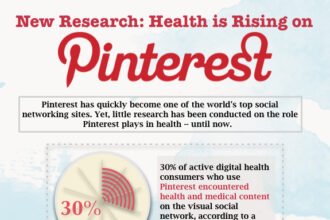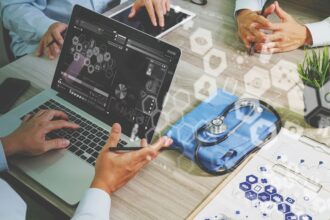The idea of supporting the medical profession though collaborative models of information flow, learning, and healthcare improvement has been bouncing around the house of medicine for years. There has always been a small subset of physicians and medical educators who believe that social learning is a critical component of medical professionalism and healthcare quality. As you might expect, I would agree thoroughly with their premise.
The idea of supporting the medical profession though collaborative models of information flow, learning, and healthcare improvement has been bouncing around the house of medicine for years. There has always been a small subset of physicians and medical educators who believe that social learning is a critical component of medical professionalism and healthcare quality. As you might expect, I would agree thoroughly with their premise.
But these early advocates and theorists of social learning have tended to draw on experiences narrowly derived from within practices where social learning was limited to hallway discussions and colleague consults. Perhaps these early advocates might also point to the social learning that arises from the question-and-answer sessions that followed institutional grand rounds programs, or the experience of watching one colleague present their case and perspective during a tumor board or morbidity and mortality conference ― the small case-based learning opportunities that have long been a part of the medical culture. There has also long been a culture of mentoring and coaching; in fact this is the primary strategy for residency and fellowship training. But the idea of extending the benefits of social learning and collaboration beyond the walls of a hospital or healthcare system and harnessing the collective intelligence of the broader medical profession to crowdsource healthcare that is safer, more timely, more effective, more efficient, more equitable, and more patient-centered … well, that is just not something that has gotten any airtime or much attention, even to today.
I begin with the seed of an idea that social learning has always been a small piece of the medical profession because it is important to recognize that we do have a small, historical foundation on which to build. Our challenge comes from the reality that (as discussed at length in my book) our healthcare quality crises are about the unfortunate variation in care that is being provided. At any time, in any state, even in any given city, two patients with the same condition could be taken on two completely different journeys with totally different outcomes, and so the real benefits of social learning will come when we engineer new models that extend beyond brick-and-mortar practice of colleagues and begin to transform broader networks of physicians into effective learning communities.
If you have examples of broader social learning across medicine improving healthcare quality outcomes, please share. Recent experience suggests if we dig hard enough we can find countless nuggets of social learning and serendipity in medicine…the problem is few are taking the time to dig.
In the end it seems that it is easier for healthcare professionals to stick to what they know, and ‘what they know’ is what has gotten us in this predicament in the first place…







